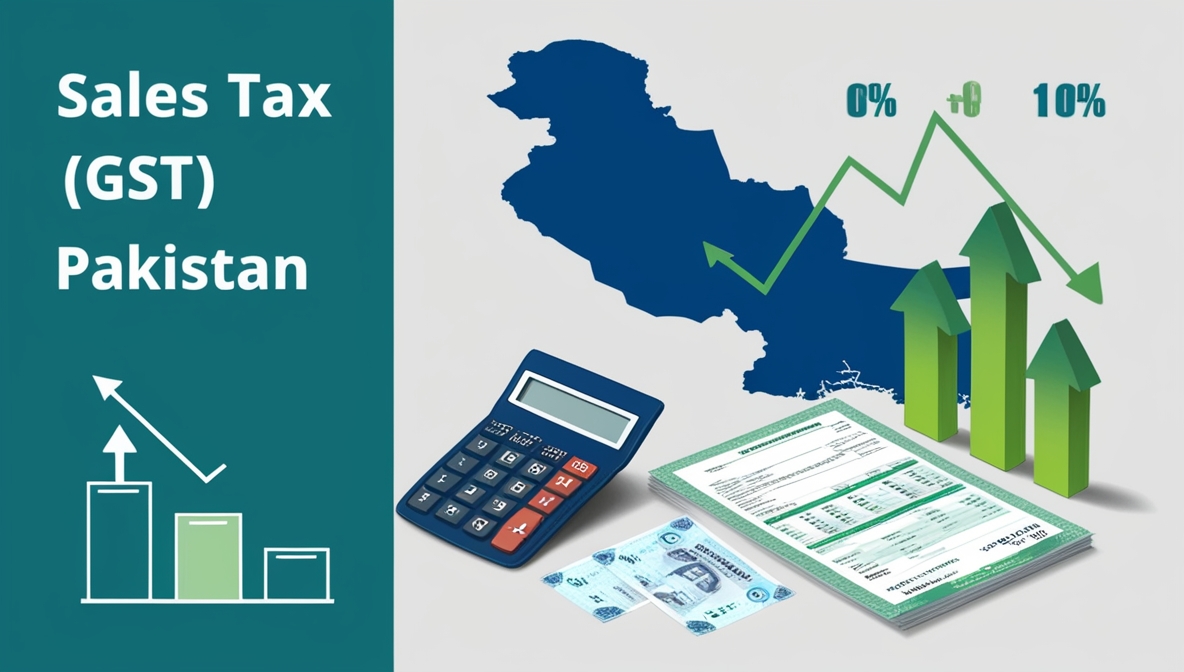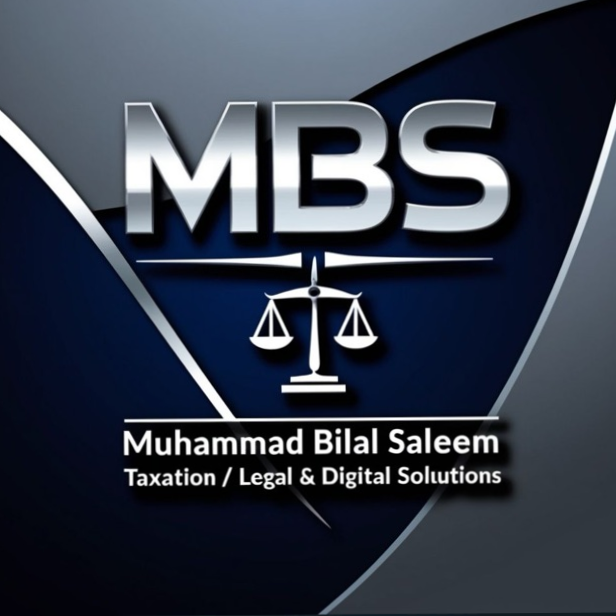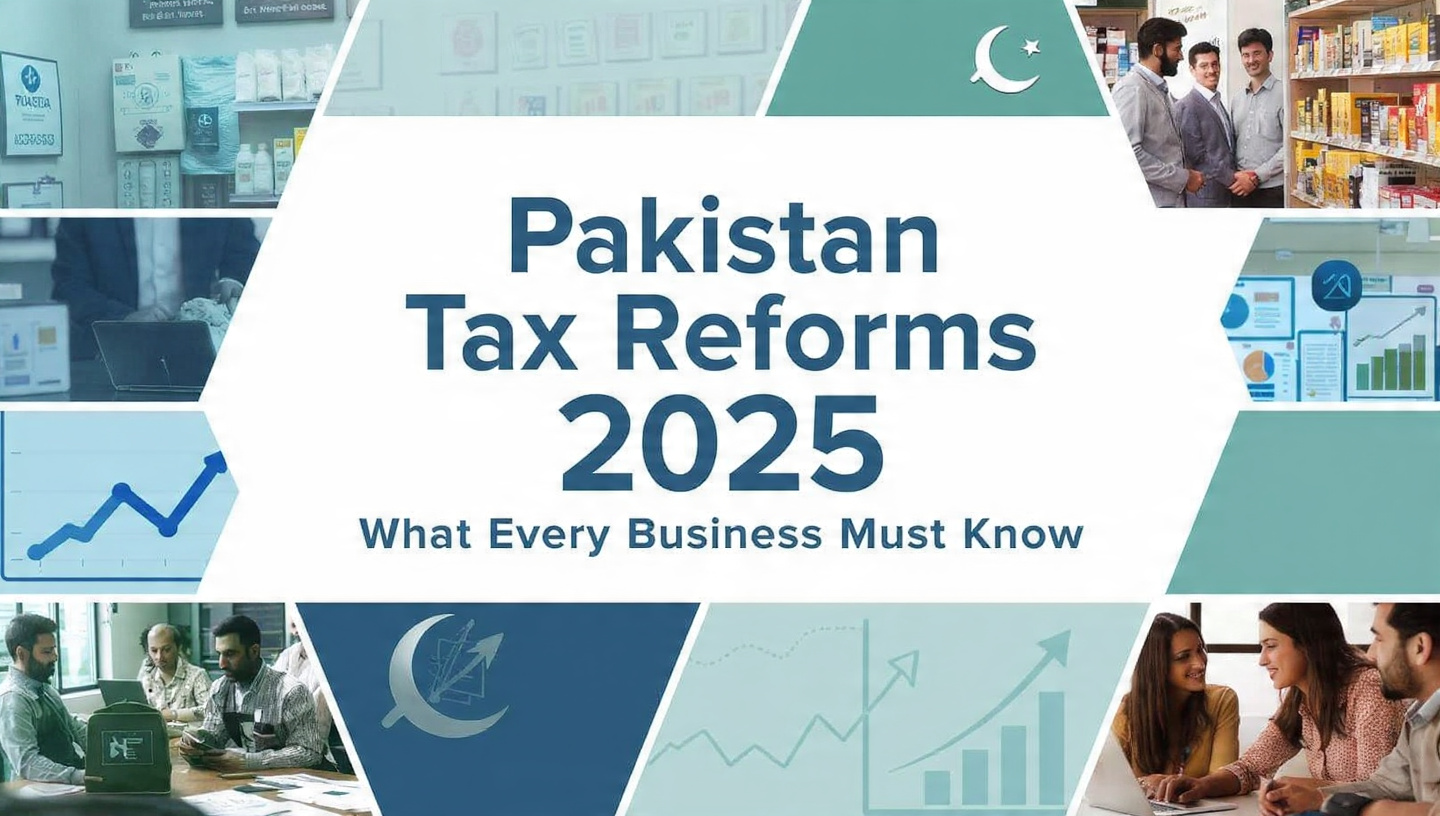
Sales Tax, commonly referred to as GST (General Sales Tax), plays a vital role in Pakistan’s economy. It is one of the primary revenue-generating taxes, collected at various stages of goods and services distribution. Whether you’re a business owner or a consumer, understanding GST is essential for financial compliance and informed decision-making. This guide will help beginners grasp the basics of Sales Tax in Pakistan and why it matters.
What is Sales Tax (GST)?
Sales Tax (GST) is an indirect tax applied to the sale of goods and services. Unlike income tax, which is paid directly to the government by individuals, GST is added to the price of goods and services and is ultimately borne by consumers. Businesses collect this tax from consumers and remit it to the government.
How Sales Tax Works in Pakistan
GST is applicable at multiple stages of production and distribution, following the value-added tax (VAT) principle. This means that tax is charged on the value added at each stage of the supply chain. Here’s how it works:
- Manufacturers add GST when they sell goods to wholesalers.
- Wholesalers include GST when selling to retailers.
- Retailers collect GST from end consumers.
For businesses, the difference between the GST collected (output tax) and the GST paid (input tax) is submitted to the Federal Board of Revenue (FBR).
Who is Required to Register for GST?
In Pakistan, businesses that meet specific criteria must register for GST with the FBR. These include:
- Manufacturers, retailers, and importers with annual sales exceeding PKR 10 million.
- Service providers in sectors where GST is applicable.
- Any business seeking to issue tax invoices and claim input tax adjustments.
Current GST Rates in Pakistan
The standard GST rate in Pakistan is 18%, though it may vary based on the type of goods or services. Here’s a breakdown:
- Standard GST (18%): Most goods and services.
- Reduced GST Rates (1-16%): Certain essential items like food and medicines.
- Exempt Goods: Basic commodities such as wheat, rice, and pulses are exempt from GST.
The government periodically updates GST rates, so staying informed is crucial for businesses and consumers.
How GST Affects Businesses and Consumers
For businesses, GST compliance requires proper record-keeping and filing monthly returns. Businesses can claim an input tax adjustment, which reduces their tax liability by subtracting the GST they paid on purchases.
For consumers, GST increases the final price of goods and services. For instance, if a product costs PKR 1,000, an 18% GST adds PKR 180, making the total price PKR 1,180.
Filing GST Returns in Pakistan
Filing GST returns is a critical requirement for registered businesses. Here’s how you can do it:
- Log in to the FBR’s IRIS Portal: Access the online tax filing system.
- Prepare GST Invoice Details: Record all sales, purchases, and tax adjustments.
- Complete Form 3B: Provide details of GST collected and input tax claimed.
- Submit the Return: File the form before the monthly deadline to avoid penalties.
Proper filing ensures compliance and helps businesses avoid fines or audits.
Exemptions and Special Rules in GST
Certain goods and services in Pakistan are either GST-exempt or have special tax treatments. Examples include:
- Exempt Items: Basic food items, education services, healthcare services.
- Zero-Rated Items: Exports are subject to a 0% GST, allowing businesses to claim input tax refunds.
Understanding these rules can help businesses save costs and maximize tax benefits.
Challenges and Reforms in GST
While GST contributes significantly to Pakistan’s revenue, it also presents challenges:
- Complex Compliance: Small businesses often struggle with record-keeping and filing.
- Fraudulent Practices: Fake invoices and tax evasion impact the system’s efficiency.
The government has introduced digital systems and reforms to simplify processes and improve compliance, such as the Point of Sale (POS) integration system for retailers.
Why GST Matters
GST is more than just a tax; it is a crucial mechanism for generating revenue to fund public services, infrastructure, and national development. For businesses, understanding GST ensures compliance, avoids penalties, and enables smoother operations.
Conclusion
Sales Tax (GST) is an essential part of Pakistan’s tax system, impacting businesses and consumers alike. By understanding its basics, rates, and compliance requirements, individuals and businesses can make informed financial decisions and contribute to the country’s economic stability.
Whether you’re starting a new business or simply want to understand how taxes affect you as a consumer, this guide serves as a great starting point to navigate the world of GST in Pakistan.




